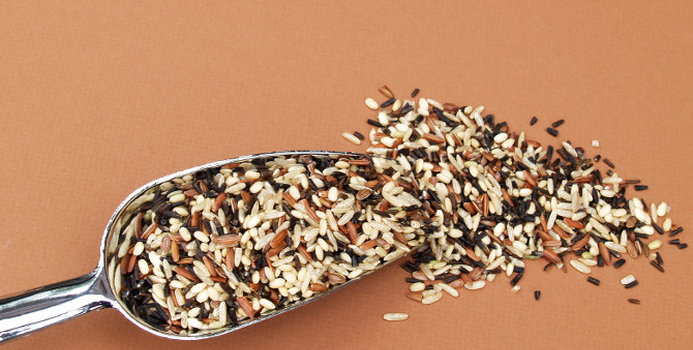Recent buzz about an exciting nutrition breakthrough may finally kick the low-carb diet craze to the curb. New research shows that you can add back certain starchy foods that were once thought to be diet disasters. The powerful nutrient that has dietitians and other healthcare professionals talking is called resistant starch. Although you may unfamiliar with this term, it's likely been a staple part of your diet for years.
But resistant starch may have an added benefit that soluble and insoluble fibers don't have. Once it reaches the large intestine, resistant starch is fermented, which creates a beneficial fatty acid called butyrate. Butyrate may block your liver's ability to use carbohydrates for fuel, which in turn causes stored body fat and recently consumed dietary fat to be burned for fuel instead. Since carbohydrate is your body's preferred form of fuel, cutting off access to carbohydrate may force your body to turn to fat as an alternative fuel source.
A recent study showed that replacing 5.4% of the total carbohydrate in a meal with resistant starch increased fat oxidation (large fat molecules are broken down into smaller molecules, which are then used for energy) by 20-30%. Another interesting finding from this study was that the increased fat oxidation continued throughout the day, not just immediately following the meal containing resistant starch. Results from animal studies have shown that resistant starch causes animals to produce more satiety-inducing hormones, which could ultimately lead to weight loss.
Recent studies have found that resistant starch also helps prevent constipation and improve colon health. Emerging research has also proven that resistant starch can help improve blood glucose levels and decrease insulin resistance in people who have type 2 diabetes. Resistant starch can also increase absorption of certain minerals, including calcium. It's also thought to prevent some types of cancer.
Resistant starch can be found in many foods, but there are certain foods that contain high amounts of this miracle nutrient. Foods with highly-concentrated amounts of resistant starch include oats, puffed wheat cereal, slightly green bananas, whole-grain breads, Italian and sourdough bread, legumes (beans and peas), cooked and cooled potatoes and yams, cooked and cooled rice and pasta (both whole-grain and refined grain), cooked plantains, corn flakes, rice cereal, potato chips, corn tortillas, barley, and millet.
How much resistant starch is recommended per day? While there is no current established recommendation, research studies have shown that eating 6-12 grams of resistant starch daily has beneficial effects on blood glucose and insulin levels, but about 20 grams daily is needed to have positive effects on your digestive system. Americans currently average 3-8 grams/day.
Kari Hartel, RD, LD is a Registered Dietitian and freelance writer based out of St. Louis, MO. Kari is passionate about nutrition education and the prevention of chronic disease through a healthy diet and active lifestyle. Kari holds a Bachelor of Science in Dietetics from Southeast Missouri State University and is committed to helping people lead healthy lives. She completed a yearlong dietetic internship at OSF St. Francis Medical Center in Peoria, IL, where she worked with a multitude of clients and patients with complicated diagnoses. She planned, marketed, and implemented nutrition education programs and cooking demonstrations for the general public as well as for special populations, including patients with cancer, heart disease, diabetes, Alzheimer's disease, obesity, and school-aged children. Contact Kari at [email protected].



